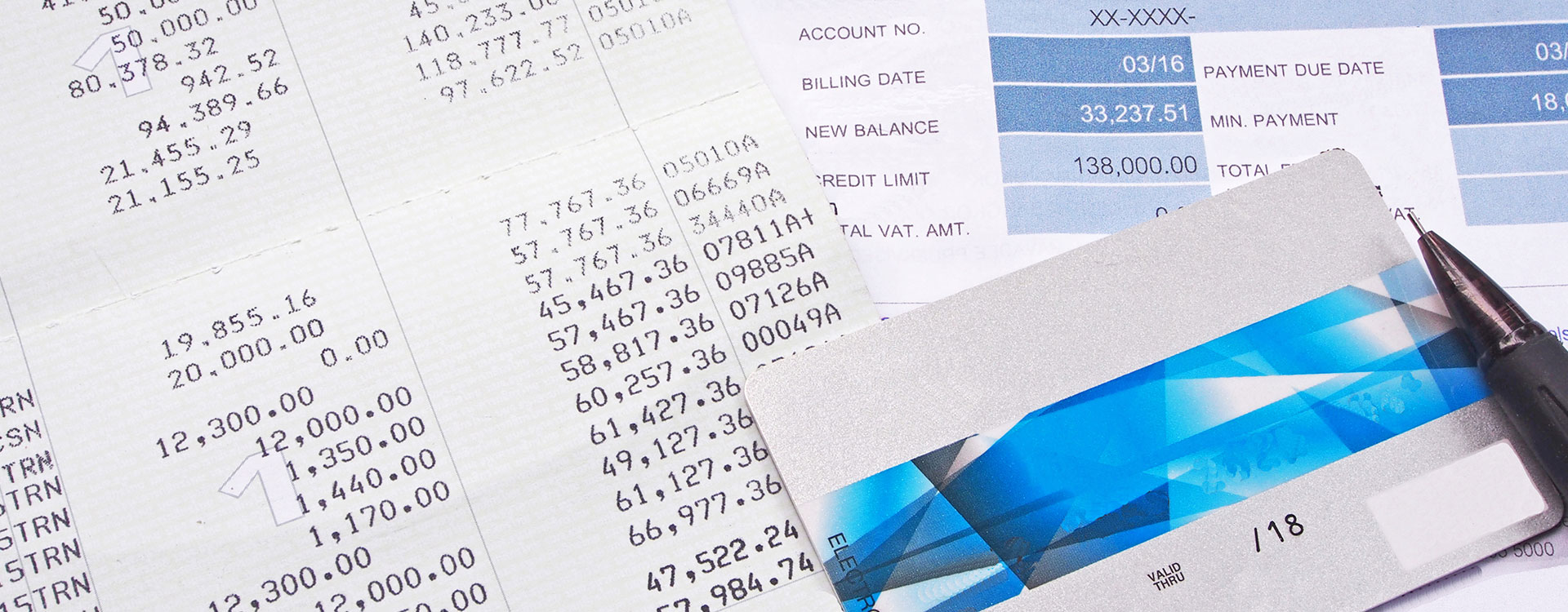Balance Transfer vs A Personal Loan: Making The Right Choice For Debt Consolidation
Posted on Aug 23, 2023 By: Melissa Cook
When choosing between a balance transfer and a personal loan, it’s important to have all the facts.
When it comes to consolidating debt and reducing interest expenses, balance transfers and personal loans are two popular options worth considering. However, each option has its own advantages and disadvantages that should be carefully evaluated.
KEY TAKEAWAYS:
- Personal loans provide an effective solution for consolidating multiple high balances for credit cards, other personal loans, and medical bills, allowing you to streamline your debt repayment process with favorable repayment terms.
- Balance transfer credit cards often come with enticing 0% introductory APRs, which means you can avoid interest charges during the promotional period, which is generally not the case with personal loans.
- Choosing between balance transfers and personal loans doesn't have to be an either-or decision, and combining the two methods can provide a great customized solution to your debt consolidation needs.
Personal Loans For Debt Consolidation: A Flexible Solution
Gone are the days when obtaining a personal loan was a challenging task, especially without collateral. The rise of online lenders and peer-to-peer lending platforms, along with traditional banks, has significantly expanded the availability of unsecured personal loans.
Nowadays, you can check your eligibility for a personal loan without affecting your credit score, with loan amounts ranging from $1,000 to $100,000 offered by various lenders.
What Are The Benefits Of Personal Loans?
Consolidating Multiple High Balances:
Personal loans provide an effective solution for consolidating multiple high balances for credit cards, other personal loans, and medical bills, allowing you to streamline your debt repayment process. These loans can be obtained for amounts up to $100,000, offering you considerable flexibility for payment terms.
Structured Repayment:
When you opt for a personal loan for debt consolidation, you commit to a predetermined repayment schedule. For instance, if you secure a 48-month personal loan, you are obligated to pay off the debt within that time frame. In contrast, balance transfers typically require only minimum monthly payments, which could keep you in a “hamster wheel of debt” for years or even decades.
Diverse Usage Of The Funds:
Personal loan proceeds can be utilized not only for transferring or consolidating credit card debt but also for financing other expenses, such as home renovations or paying off medical bills. This versatility allows you to bypass credit cards altogether, providing greater financial control.
Extended Repayment Periods:
Unlike the relatively short 0% introductory APR offers associated with balance transfer credit cards (usually lasting 18 months or less), personal loans offer repayment terms of up to 72 months (6 years) or even longer. Longer repayment periods provide more flexibility and convenience, especially during periods of high inflation like we’re experiencing now.
Your Credit Score Could Improve:
In terms of credit scoring, installment loans such as personal loans are viewed more favorably than credit card debt. Consequently, by successfully managing a personal loan, you can positively impact your credit score.
Pre-approval without Credit Inquiry:
Many lenders offer the convenience of pre-approval for personal loans without initiating a hard credit pull. This allows you to assess your options without affecting your credit score.
What Are The Drawbacks For Personal Loans?
Interest Payments:
Unlike 0% introductory APR balance transfer offers, personal loans always involve interest charges. Interest rates for personal loans typically start above 6% and are often higher for borrowers with average credit scores.
Credit Score Requirements:
Personal loans generally require a higher credit score for favorable terms. Borrowers with scores around 700 or higher have a better chance of securing a competitive APR, but average-credit borrowers may face rates up to or above 17%.
Monthly Payment Commitment:
While personal loans provide a structured repayment timetable, they also necessitate a monthly payment that may be higher than the minimum payment on a balance transfer credit card. If flexibility in monthly payments is crucial for you, a personal loan might not be the ideal choice.
Origination Fees:
While not applicable to all personal lenders, many charge origination fees. These fees can be significant, especially for borrowers with less-than-stellar credit. SO you must take this into consideration, as it they could add
When Is A Personal Loan The Right Choice?
A personal loan is often the best solution if you are uncertain about your ability to pay off your debt within a year or if you are tempted to make only minimum payments on a balance transfer credit card.
Additionally, personal loans offer an opportunity to improve your credit score, as they are viewed more favorably by credit scoring formulas.
Lastly, personal loans are a suitable option when you have various types of debt to consolidate, such as credit card balances, medical bills, or other personal expenses.
Credit Card Balance Transfers: Exploiting 0% Introductory APRs
Transferring balances to another credit card is a simple and efficient method of paying off debt. Typically, the process involves completing a credit card application and providing details about your existing credit card accounts.
Currently, there are numerous 0% introductory APR balance transfer offers available, which can be explored through our regularly updated list of the best offers in the market.
What Are The Benefits Of Balance Transfers?
0% Introductory APR:
Balance transfer credit cards often come with enticing 0% introductory APRs. This means you can avoid interest charges during the promotional period, which is generally not the case with personal loans. Personal loan interest rates typically start at around 7% or higher.
Rewards Programs:
Many balance transfer credit cards offer appealing rewards programs in addition to their 0% introductory APRs. Moreover, some cards extend the 0% intro APR offer to new purchases, providing additional flexibility.
What Are The Drawbacks For Balance Transfers?
Transfer Fees:
Balance transfers usually incur fees, typically ranging from 3% to 5% of the amount transferred. So for example, if you transferred a balance of $10,000 then you might expect transfer fees between $300 to $500 right off the bat. Just something to keep in mind as these fees can reduce the overall savings from the 0% intro APR.
Credit Limit Restrictions:
If you have a considerable amount of debt to consolidate, the balance transfer may be limited by the credit limit of the card. This limitation could leave a portion of your debt unresolved.
Minimum Monthly Payments:
Balance transfer credit cards usually require only small minimum monthly payments. While this provides flexibility, it may lead to carrying a substantial balance when the 0% intro APR period expires.
Shorter Promotional Periods:
Unlike personal loans with longer repayment terms, the 0% intro APR period for balance transfers typically lasts for 18-21 months at most. If you anticipate needing more time to pay off your debt, a balance transfer might not be the most suitable option.
When Is A Balance Transfer The Best Choice?
A balance transfer is most advantageous if your debt is relatively small, and you are confident about paying it off entirely before the 0% intro APR period ends. Relying on the possibility of obtaining another balance transfer at the end of the period is not a prudent strategy.
Additionally, balance transfers are suitable for individuals who prefer the flexibility to make new purchases, as many credit cards with balance transfer offers also provide excellent 0% intro APR periods for new purchases.
Combining Balance Transfers And Personal Loans
Choosing between balance transfers and personal loans doesn't have to be an either-or decision when managing your debt. In fact, combining the two methods can provide a great customized solution to your debt consolidation needs.
For example, if you have $20,000 in high-interest credit card debt but anticipate difficulty paying it all off within a 0% intro APR period, you can transfer a manageable amount to a balance transfer credit card while securing a personal loan for the remaining debt.
This strategy allows you to avoid interest on as much of your debt as possible while minimizing the risk of higher credit card interest rates kicking in before you can fully repay it.
Take Charge Of Your Debt Management Solution Today
When it comes to deciding between balance transfers and personal loans for debt consolidation, carefully consider your individual circumstances and financial goals. Both options offer unique benefits and drawbacks, and the best approach may involve a combination of the two methods.
We at Credit9 understand the challenges you face when managing multiple debts, and we're here to help. Our mission is to provide you with the guidance, support, and expertise necessary to make informed financial decisions. By exploring our range of personal loans, you can take the first step towards a brighter financial future.
Together, we can help you become debt-free and empower you to achieve your financial goals.
How Credit9 Can Help You
At Credit9, we offer loan options that could provide you with the financial solution that works best for you.
Since 2018, Credit9 has provided over $460 Million in loans to over 36,000 of our customers, and we’re confident we can help you too.
For more information about Credit9’s unique debt consolidation services, contact us today to see how we can help you consolidate your debts and receive a free, no-obligation, and fully-customized Credit9 loan solution!
Debt Consolidation Loan




 Clear Language Establishes Trust And Minimizes Anxiety When It Comes To Finances
Clear Language Establishes Trust And Minimizes Anxiety When It Comes To Finances
 The Best Ways To Loan Money To Friends And Family
The Best Ways To Loan Money To Friends And Family
 What Is Black Market Value Of Stolen Credit Card Info?
What Is Black Market Value Of Stolen Credit Card Info?